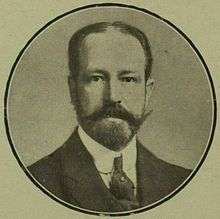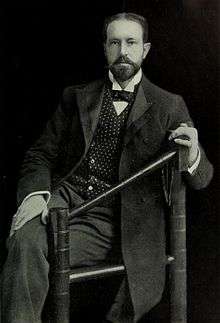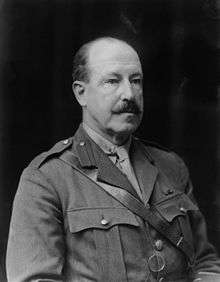Sir Henry Norman, 1st Baronet
| The Right Honourable Sir Henry Norman PC | |
|---|---|
 | |
|
In office 1910–1923 | |
| Preceded by | John Lloyd Gibbons |
| Succeeded by | Thomas Edgecumbe Hickman |
| Personal details | |
| Born |
19 September 1858 Leicester |
| Died | 4 June 1939 |
| Nationality | British |
| Political party | Liberal Party |
| Spouse(s) | Ménie Muriel Dowie, Florence Priscilla McLaren |
| Children | Henry Nigel St Valery Norman |

Sir Henry Norman, 1st Baronet PC (19 September 1858 – 4 June 1939) was an English journalist and Liberal politician. Norman was educated privately in France and at Harvard University, where he obtained his B.A. For several years he worked on the editorial staff of the Pall Mall Gazette and later joined the editorial staff of the News Chronicle, being appointed Assistant Editor of the latter in 1895. He retired from journalism in 1899. During this time he travelled widely in Canada and the United States and in Russia, Japan, China, Siam, Malaya and Central Asia. Much of the material included in the two volumes mentioned in the description was amassed during these tours.
Family and education
Norman was born at Leicester, the son of Henry Norman, a merchant and local radical politician. Norman was educated at Leicester Collegiate School and Grove House School and later studied theology and philosophy at Leipzig and Harvard University. His family were Unitarians in religion and Norman first embarked in a career as a preacher but he gave up this calling and his religion on his return to England.
In 1891 he married Ménie Muriel Dowie (1867–1945) but they divorced in 1903 on the grounds of her adultery with a family friend, Edward Arthur Fitzgerald.[1] Norman was awarded custody of their son Henry Nigel St Valery Norman who was born in 1897. In 1907 he married Florence Priscilla (‘Fay’) McLaren (1884–1964), the daughter of the wealthy industrialist and Liberal MP, Sir Charles Benjamin Bright McLaren, later Lord Aberconway. They had three children. In 1922 he purchased Ramster Hall, Chiddingfold, Guildford, Surrey with Lady Norman.[2]
Journalism
Norman became a journalist working for the Pall Mall Gazette and the New York Times. As a journalist he was famous for getting at the truth behind the Dreyfuss Affair. He was on the staff of the Daily Chronicle from 1892, becoming assistant editor. Norman also travelled extensively in the East, where he took a number of photographs that are held at Cambridge University.[3] Later he founded the magazine The World's Work.
Business
He was appointed Assistant Postmaster-General in 1910 and his interest in international communications led to a number of appointments related to wireless and telegraphy, among them Chairman of the War Office Committee on Wireless Telegraphy 1912, and Chairman of the Imperial Wireless Telegraphy Committee of 1920, the latter convened to draw up a complete wireless scheme for the Empire.[4]
In other business, Norman was a director of a number of companies connected to the coal mining and iron trades industries.
Politics

Norman was a Liberal Member of Parliament for Wolverhampton South from 1900 to 1910, and for Blackburn from 1910 to 1923.[5] He was created a Baronet, of Honeyhanger in the Parish of Shottermill in the County of Surrey, in 1915 and in 1918 he was admitted to the Privy Council. In January 1910 he was appointed Assistant Postmaster General but a few days later he lost his seat in the general election of January 1910 and he never held ministerial office again. He was however made chairman of a number of important government ranging from the Imperial Wireless Telegraphy Committee to committees on Patent Medicines and Rent Restrictions, Betting Duty and Industrial Paints. Norman was also appointed a Justice of the Peace for Surrey.
Selected writings
- An Account of the Harvard Greek Play (1881)
- The Preservation of Niagara Falls (1882)
- The Real Japan (1892)
- The Peoples and Politics of the Far East (1895)[6]
- Round the Near East
- All the Russias (1902)
- Will No Man Understand? a play, (1934)
Notes
- ↑ French, Patrick. "Norman, Sir Henry, first baronet (1858–1939), journalist and politician". ONDB. Retrieved 3 July 2015.
- ↑ "History of Ramster Hall in Surrey - Weddings".
- ↑ "Sir Henry Norman Far East collection, circa 1890 (Y302E)". Cambridge Digital Library. Retrieved 3 July 2015.
- ↑ "BRITAIN TO LINK UP EMPIRE BY WIRELESS; Imperial Committee Recommends Sysem of Generating Energy by Thermionic Valves.".
- ↑ "Sir Henry Norman". Hansard. Retrieved 3 July 2015.
- ↑ Henry Norman (1 January 1895). "The Peoples and Politics of the Far East: Travels and Studies in the British ...". Scribner – via Internet Archive.
References
- Leigh Rayment's list of baronets
- Leigh Rayment's Historical List of MPs
- Obituary, The Times, 5 June 1939
- Patrick French, entry in Dictionary of National Biography, OUP 2004-08
- Who was Who, OUP 2007
External links
| Wikimedia Commons has media related to Sir Henry Norman, 1st Baronet. |
- Hansard 1803–2005: contributions in Parliament by Henry Norman
| Parliament of the United Kingdom | ||
|---|---|---|
| Preceded by John Lloyd Gibbons |
Member of Parliament for Wolverhampton South 1900–January 1910 |
Succeeded by Thomas Edgecumbe Hickman |
| Preceded by Phillip Snowden and Thomas Barclay |
Member of Parliament for Blackburn December 1910–1923 With: Phillip Snowden 1910–1918 Percy Thompson Dean 1918–1922 Sydney Henn 1922–1923 |
Succeeded by Sir Sydney Herbert Holcroft Henn and John Duckworth |
| Baronetage of the United Kingdom | ||
| New creation | Baronet (of Honeyhanger) 1915–1939 |
Succeeded by Henry Nigel St Valery Norman |